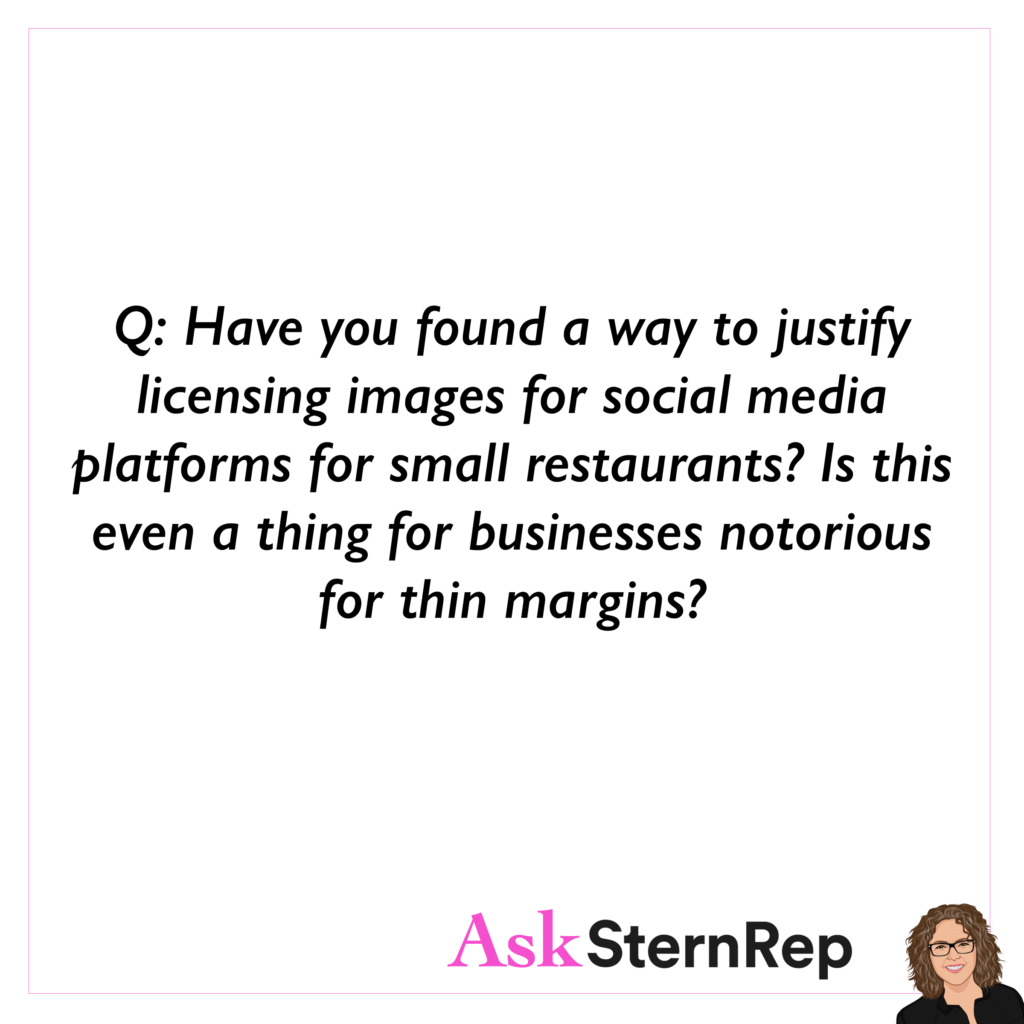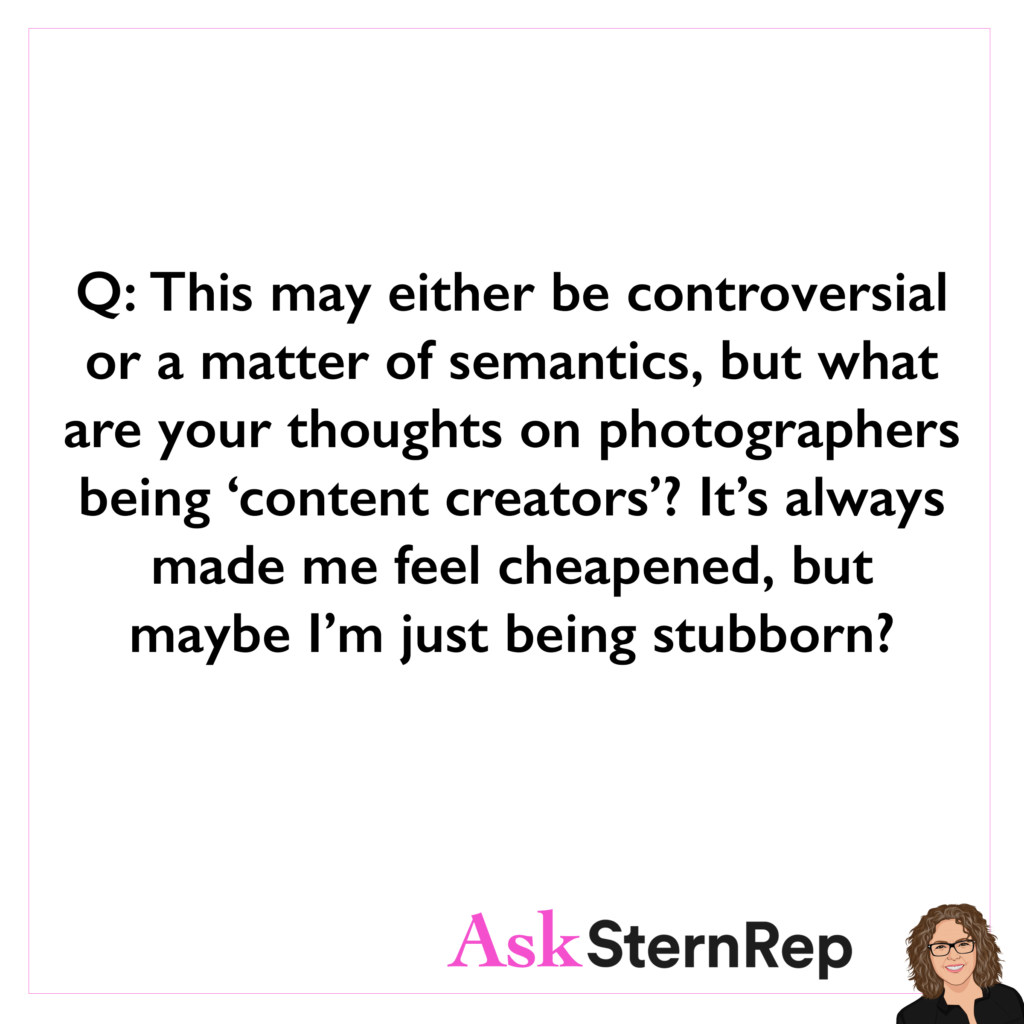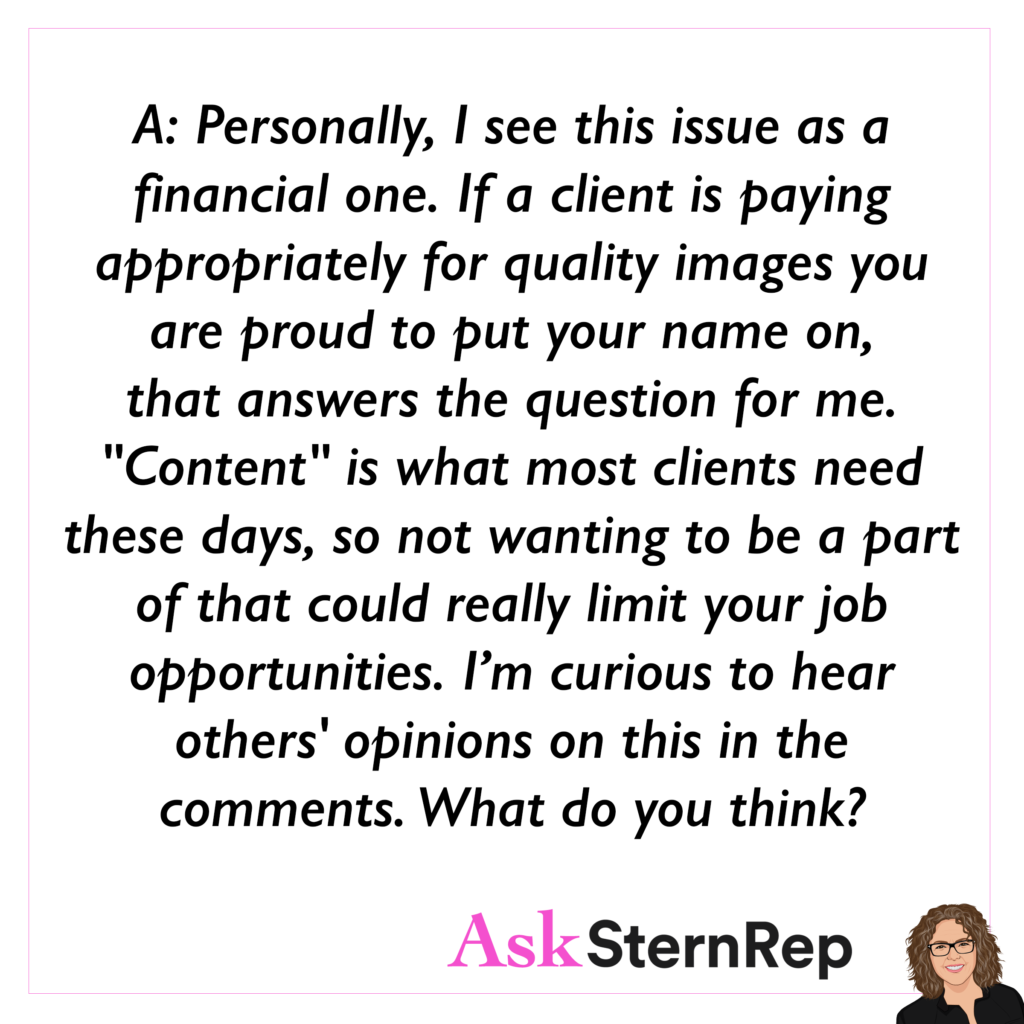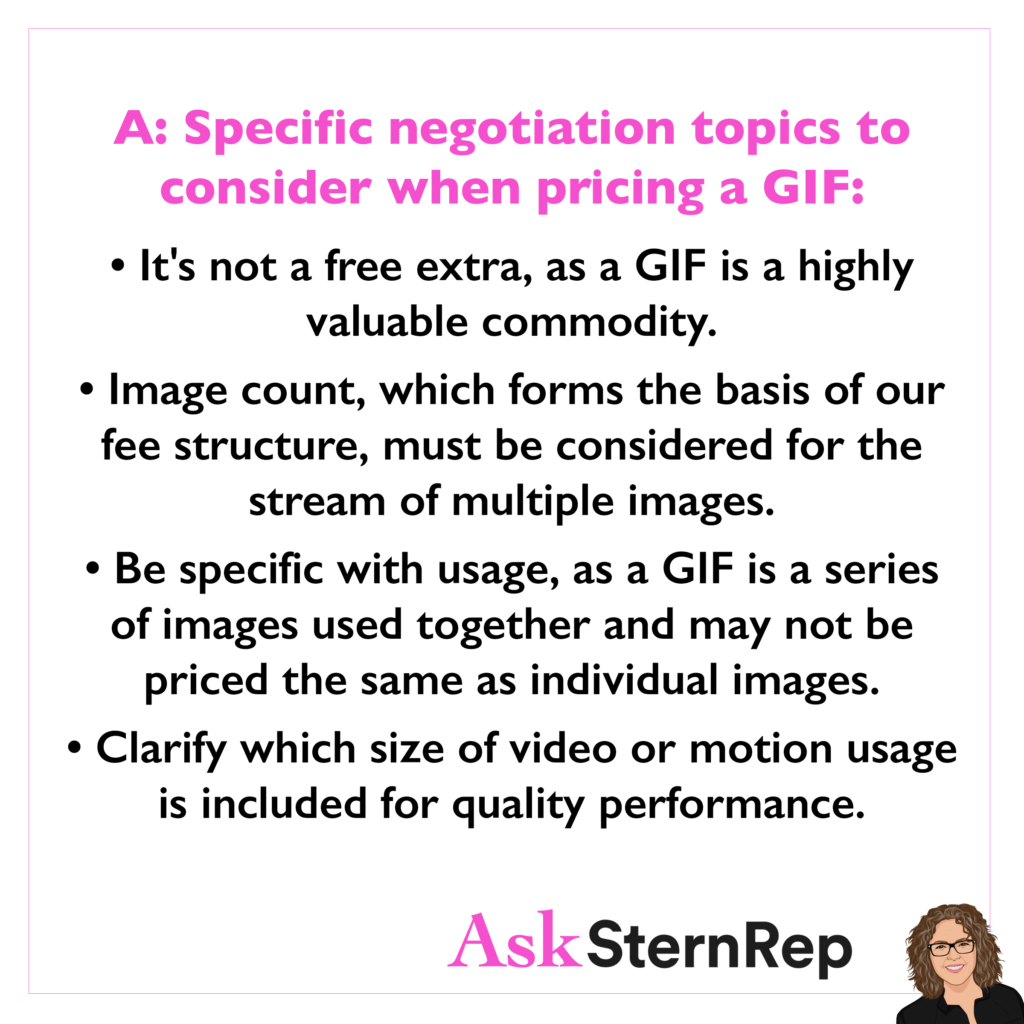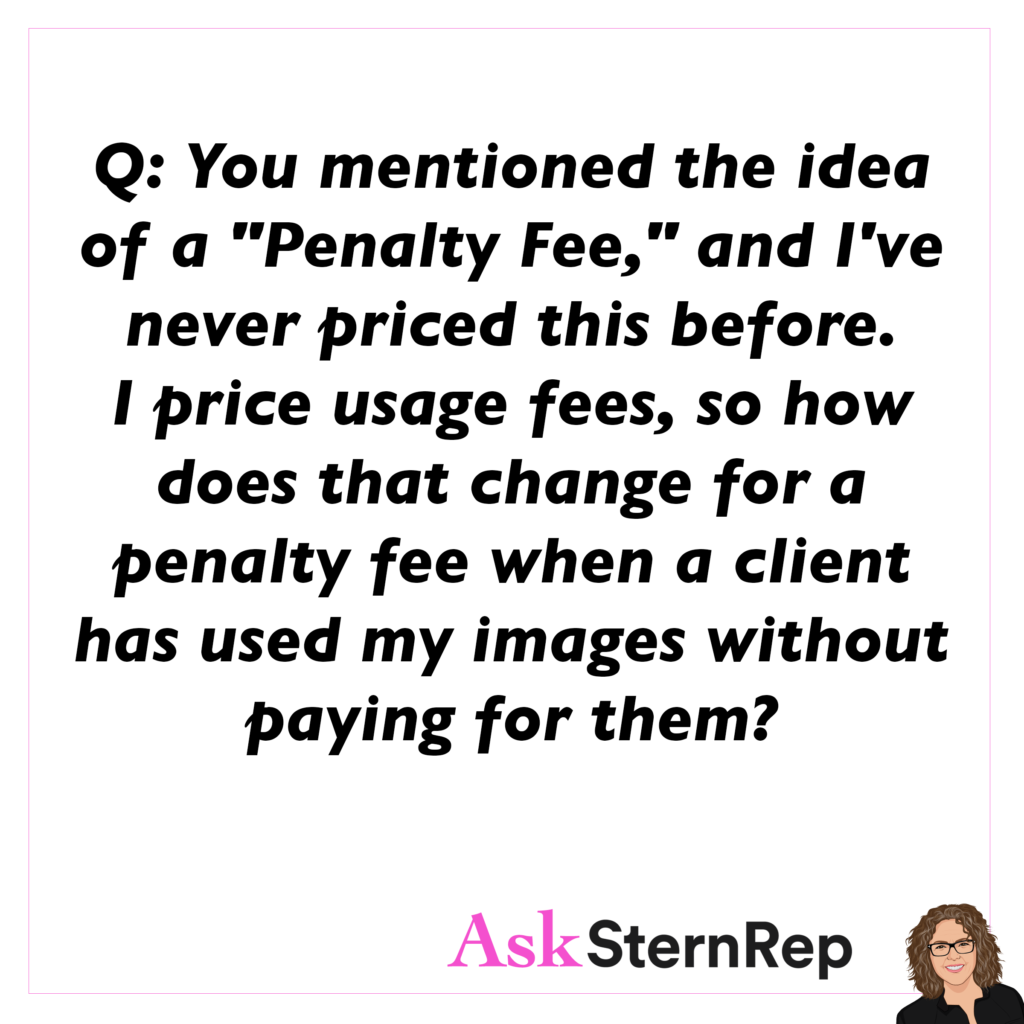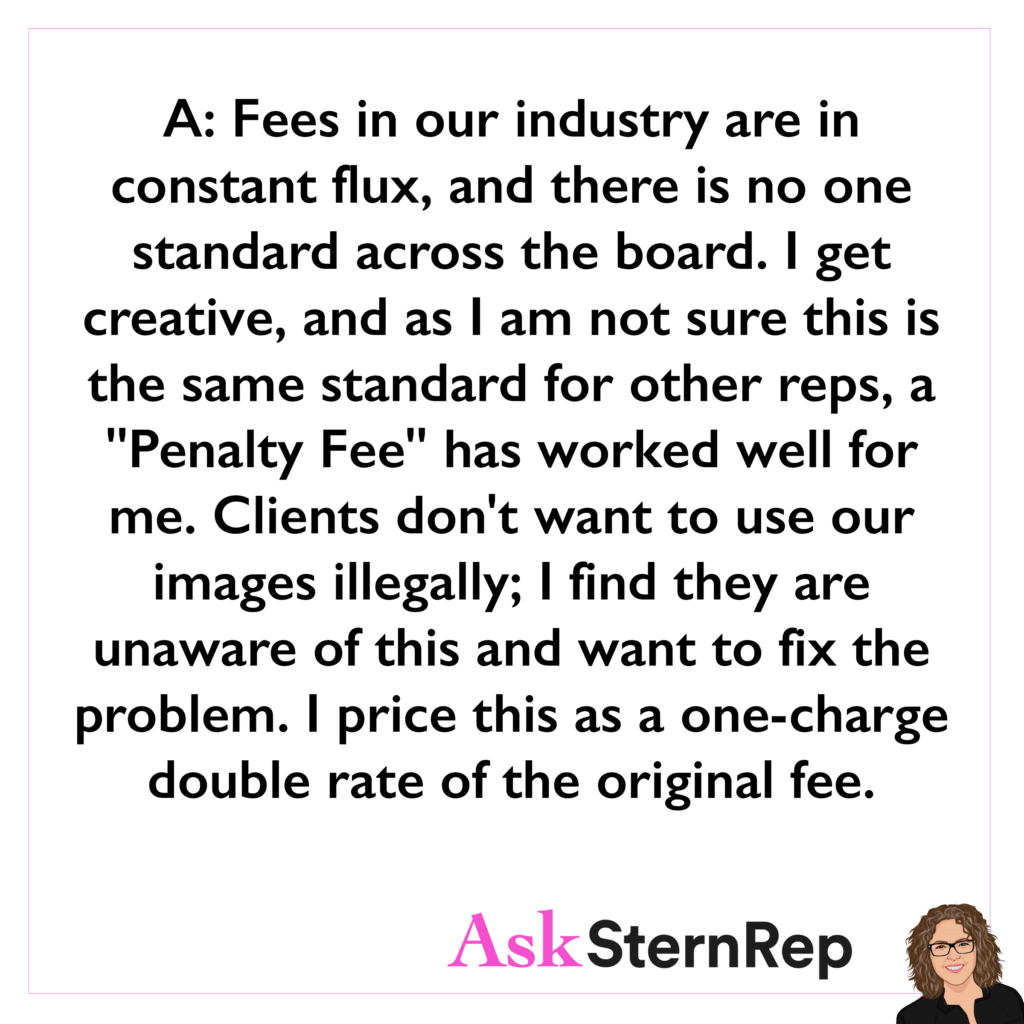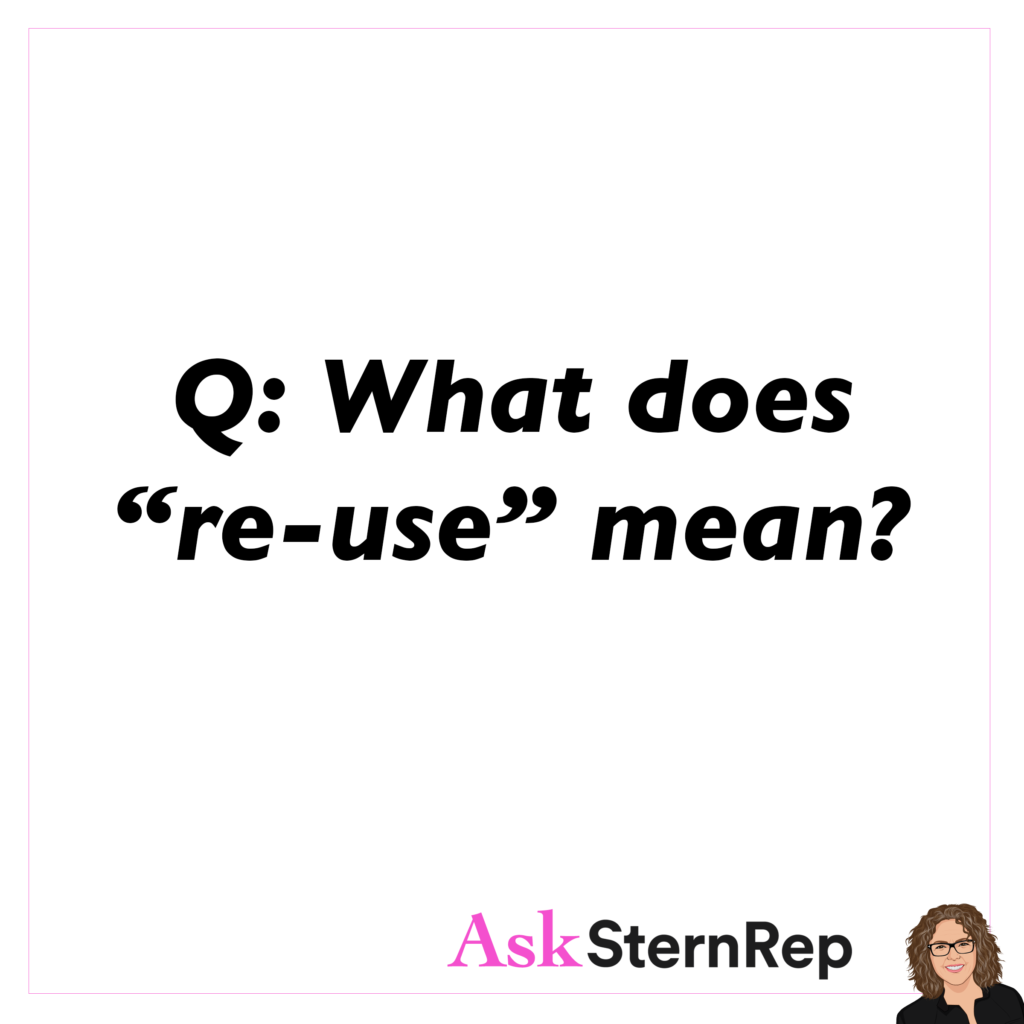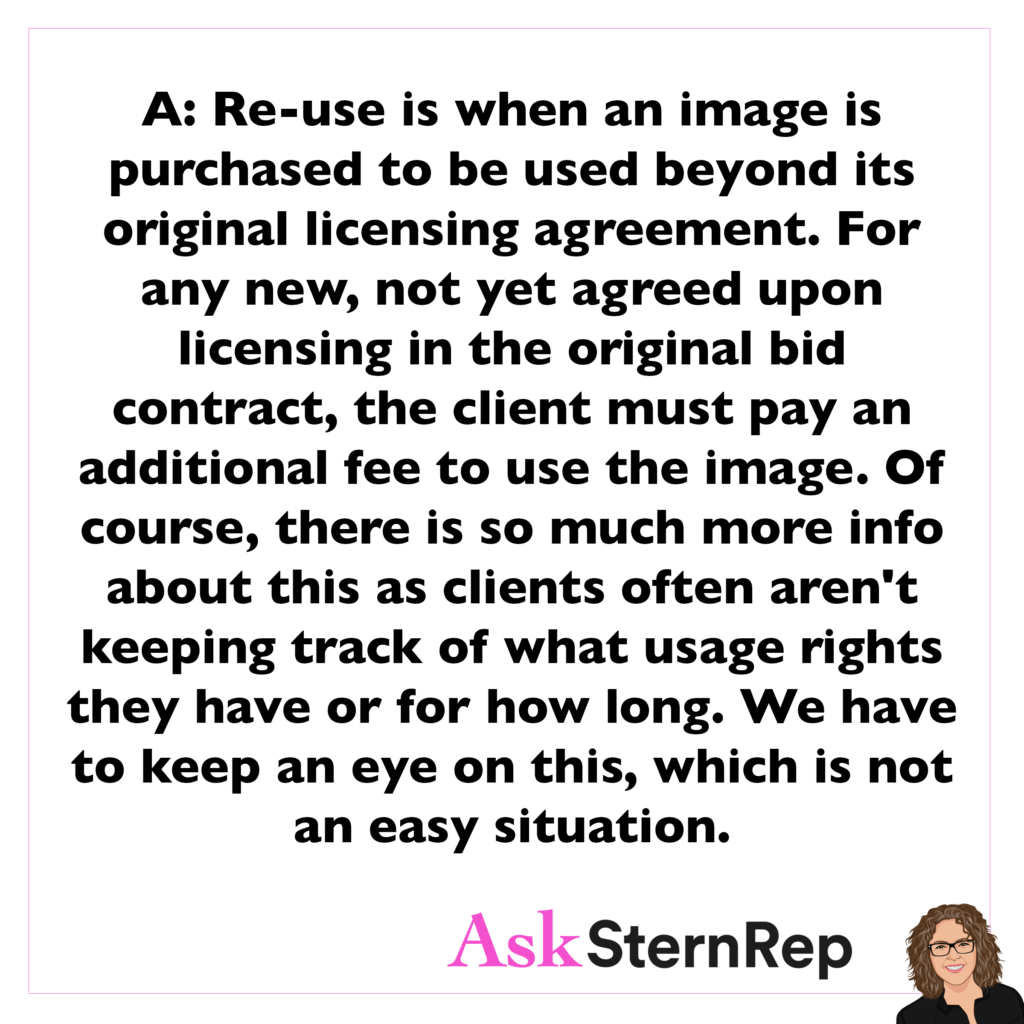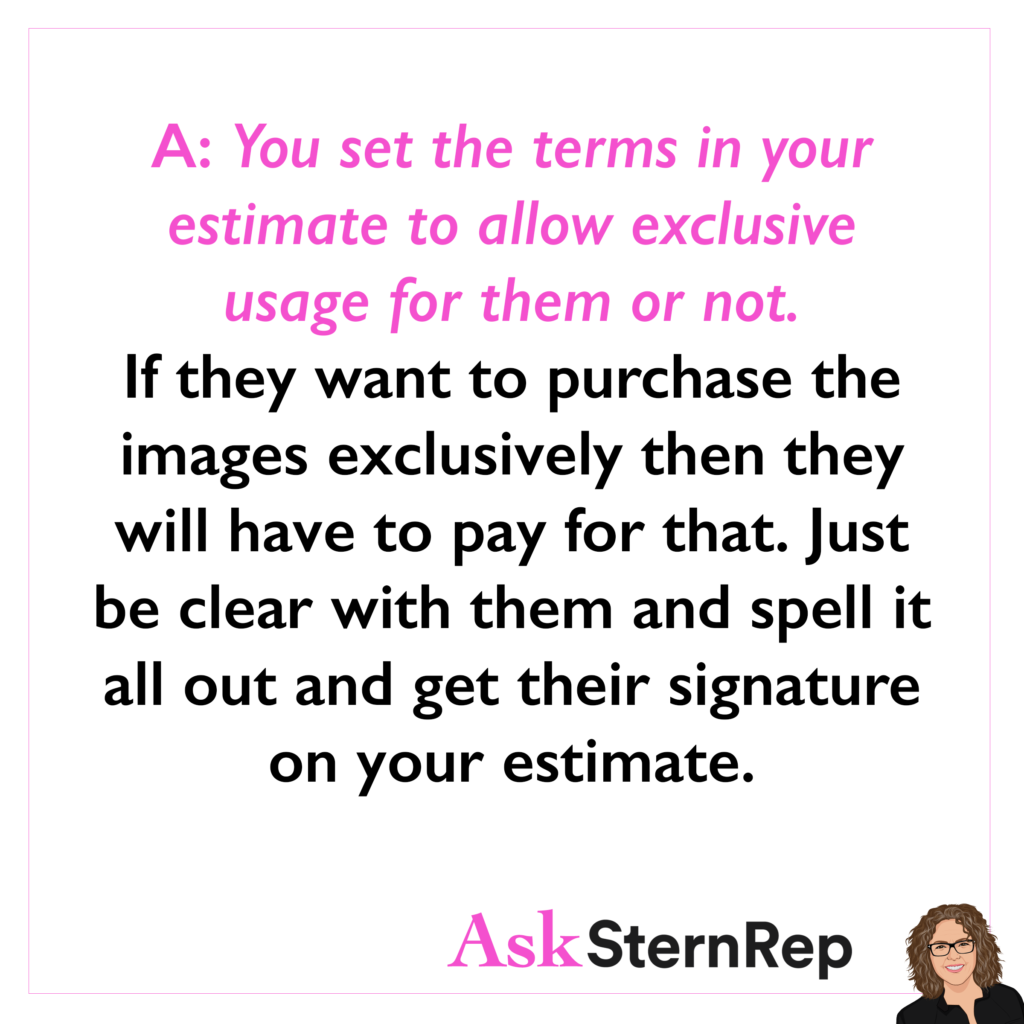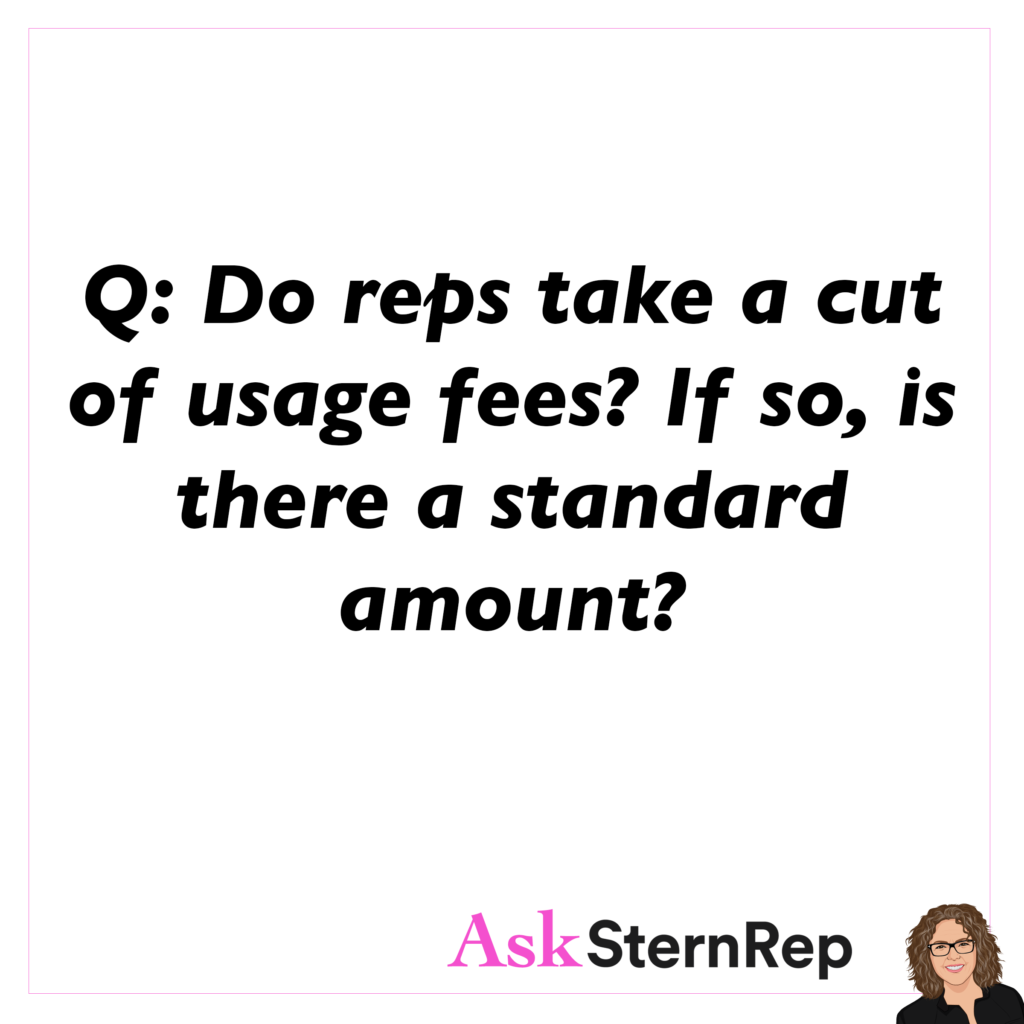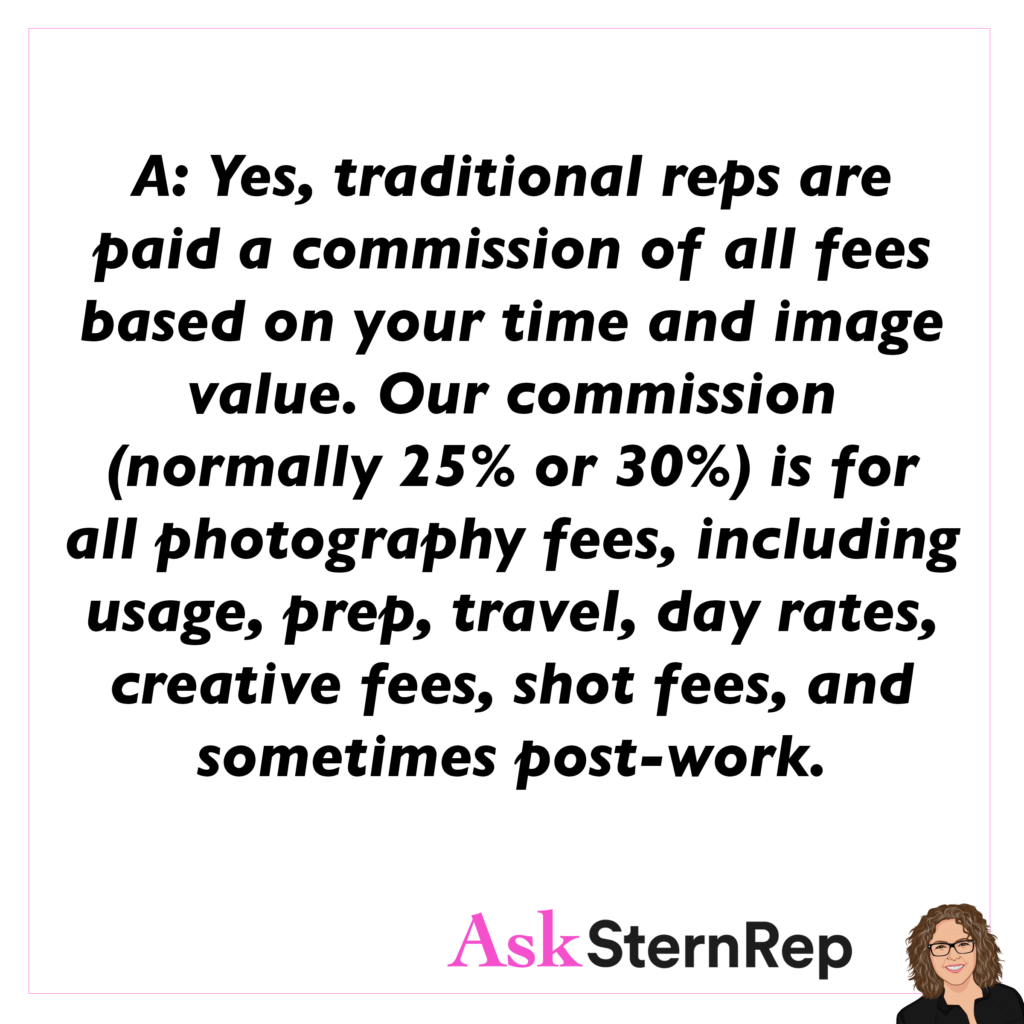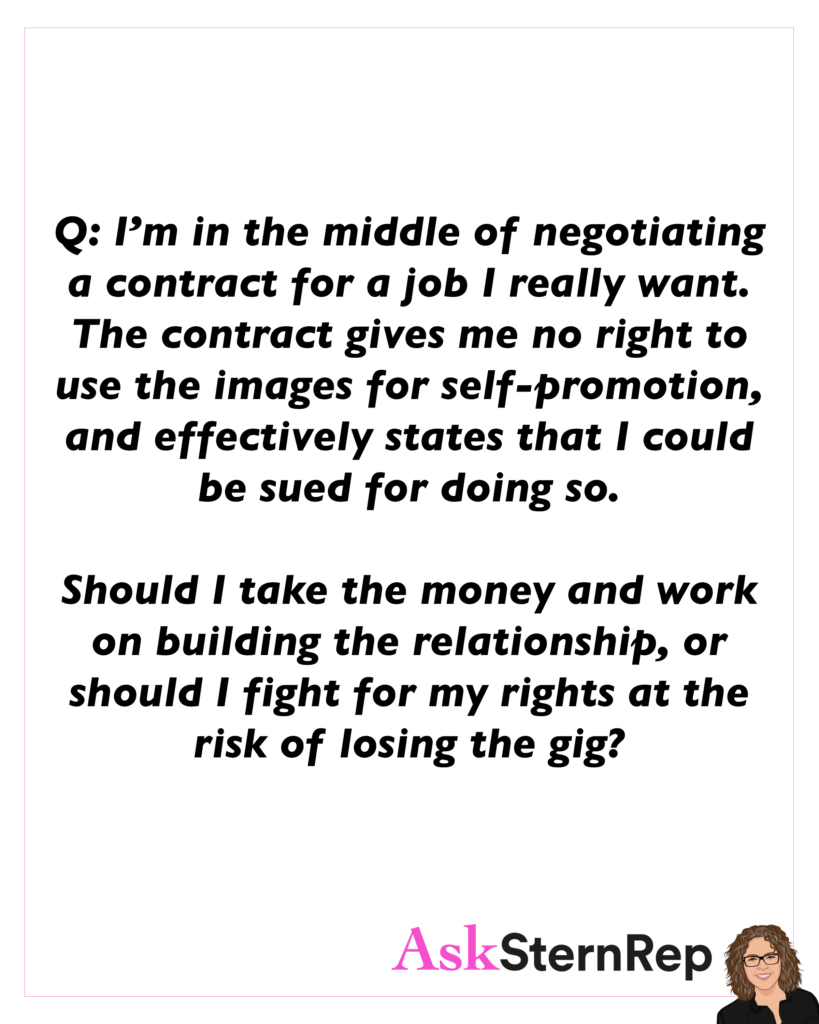
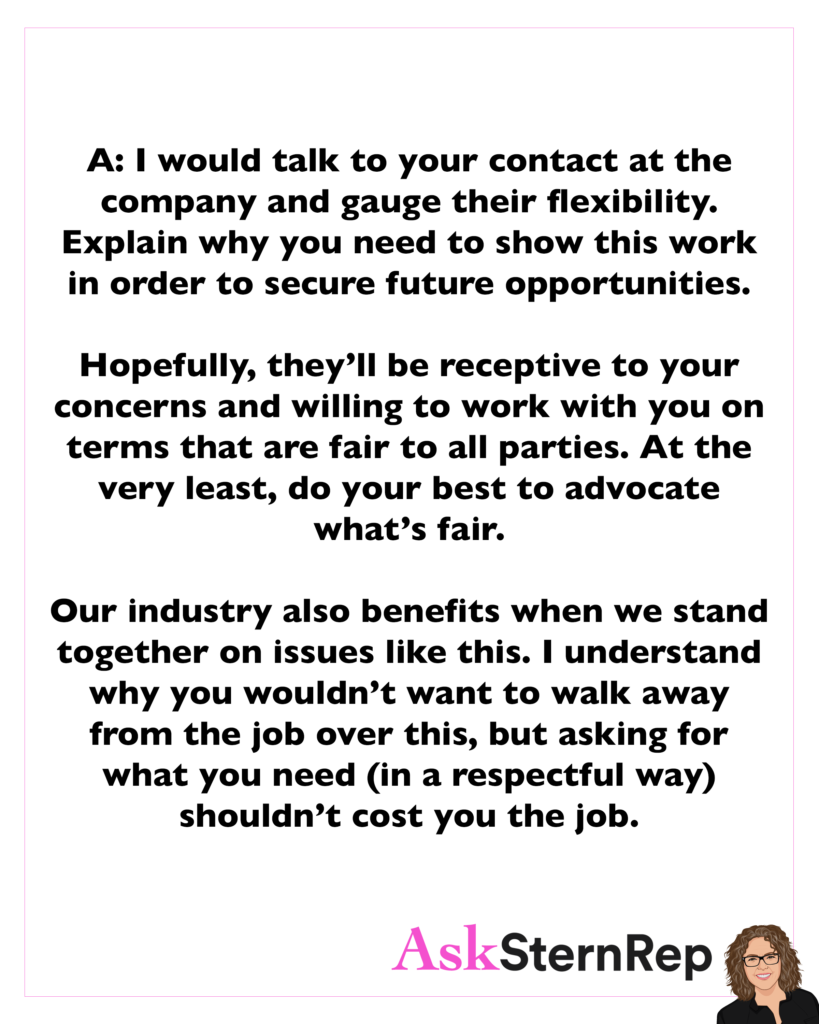
Q:
I’m in the middle of negotiating a contract for a job I really want. The contract gives me no right to use the images for self-promotion, and effectively states that I could be sued for doing so.
Should I take the money and work on building the relationship, or should I fight for my rights at the risk of losing the gig?
A:
I would talk to your contact at the company and gauge their flexibility. Explain why you need to show this work in order to secure future opportunities.
Hopefully, they’ll be receptive to your concerns and willing to work with you on terms that are fair to all parties. At the very least, do your best to advocate what’s fair.
Our industry also benefits when we stand together on issues like this. I understand why you wouldn’t want to walk away from the job over this, but asking for what you need (in a respectful way) shouldn’t cost you the job.

